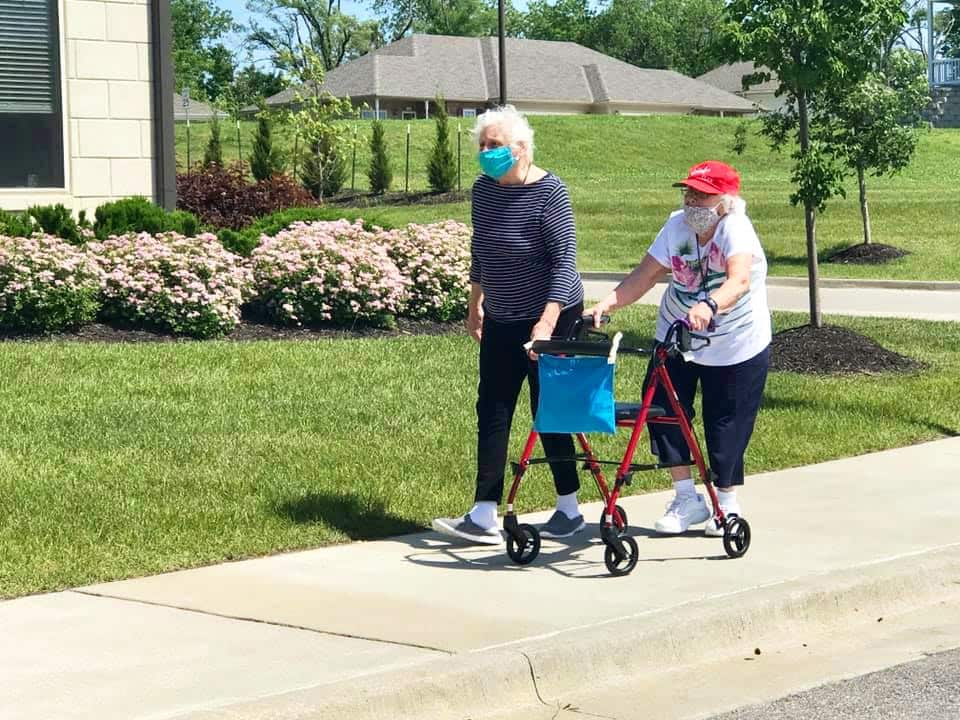Thriving is a life-long goal for most people. Being able to survive is not enough to live a fulfilling life. Healthy people need to flourish! When babies are born, the pediatrician wants to see the newborn within a few weeks to make sure it is thriving. That means, not only is the child nourished and physically cared for but is showing signs of being loved and nurtured. The doctor may be looking for indicators as the mother and baby interact. Smiles and attention to the mother’s voice are all good indicators.
As the child grows, the signs of thriving may show up as autonomy, strength, independence along with typical survival indicators of height and weight. From infancy through adulthood, thriving is a sign of good physical and mental health.
Providing An Environment That Seniors Can Thrive Is Key To Successful Aging.
Children thrive in a secure home. Although they are extremely dependent on adults for their care, they soon begin to show their independence and look for fulfillment on their own. Of course, we know that sometimes that leads to trouble, but it is all part of the learning curve of adulthood.
It is also true that as we age, we continue to need “a place to thrive.” For obvious reasons, Elders may end up living alone after losing a spouse. The family may not be close by, and the nurturing environment may be lost. So the elements of a fulfilling life like having a purpose, being socially engaged, serving others, having a sense of significance may be lost. Although a Senior may be surviving, they may not be thriving.
For All Seniors In Kansas City And Around The World, This Time Is Particularly Challenging.
Research has shown that a critical element in healthy aging is socialization. Never has socialization been so difficult. Whether a Senior is living in their own home or whether they have moved to an Assisted Living community, they share similar mental health risks.
The medical community is warning the population in general about the depression that can quickly develop during this time of separation and interruption of normal activities. Although social isolation is not the same as physical separation, it is still a difficult situation to overcome.
Elders, in general, have spent their lives physically interacting with loved ones and friends. They are not as attuned to social media and other modes that younger generations use today.
Losing the ability to drive and relying on others for transportation is just one problem. But the cancelation of Senior Centers programs, church services, all group activities, and even the opportunity to get a hair cut is heartbreaking. A deep sadness can quickly develop.
Living In An Assisted Living Does Not Entirely Solve This Problem.
No one is immune to these issues, whether it is a teenager who wants to go to school with his buddies or an 80-year-old who can’t go to the Senior Center. Deprivation and loss are real emotions to deal with.
This is a difficult time for everyone. Listening to the news or watching television constantly is depressing. Opportunities for light-hearted laughter are few and far between.
Living in a community does have some advantages, though, but it remains that each Senior will go through this journey differently. Many of them have been through times that were just as challenging as this one and maybe worse.
Their ability to cope is very personal. Of course, families are doing everything they can to help them thrive, but the separation for seniors is daunting. The fact that we have no idea when this will end is even more damaging.
How Can Seniors Living In Senior Communities Thrive?
Even though many residents and family members are frustrated by the no visiting rules, it is apparent that having their loved one living in an Assisted Living or Memory Care community may be the best place to be.
The staff members, who are also practicing stringent health protocols, have become surrogate families. Living in a community, unlike living alone, gives residents the constant opportunity for engagement with others.
As an example, people at The Piper Assisted Living and Memory Support have multiple opportunities every day to engage in meaningful activities. Games, movies, and happy hours are continually available. Outside adventures for fresh air are ongoing.
All of this provides an environment for seniors to thrive. Other people to talk to, learning activities, books to read are essential for growth. The need for a secure home, a place to feel needed and connected to others does not end for adults; it may just become more and more critical.
While many people think Assisted Living is primarily concerned with health issues, socialization and emotional support may be the most important of all.
Surviving And Thriving Are Two Different Goals.
While having your basic physical needs met is essential for survival, the ability to thrive takes more. Elders need to continue to feel significant, honored, purposeful. This is all possible in a community. Elders also need to feel independent as much as possible, making their own decisions about what and when to eat, where to go, what activities to participate in.
During this challenging time of mandatory isolation, thank heavens, there are communities where Elders can shelter together in a safe environment. Not only will they survive, but continue to thrive!

